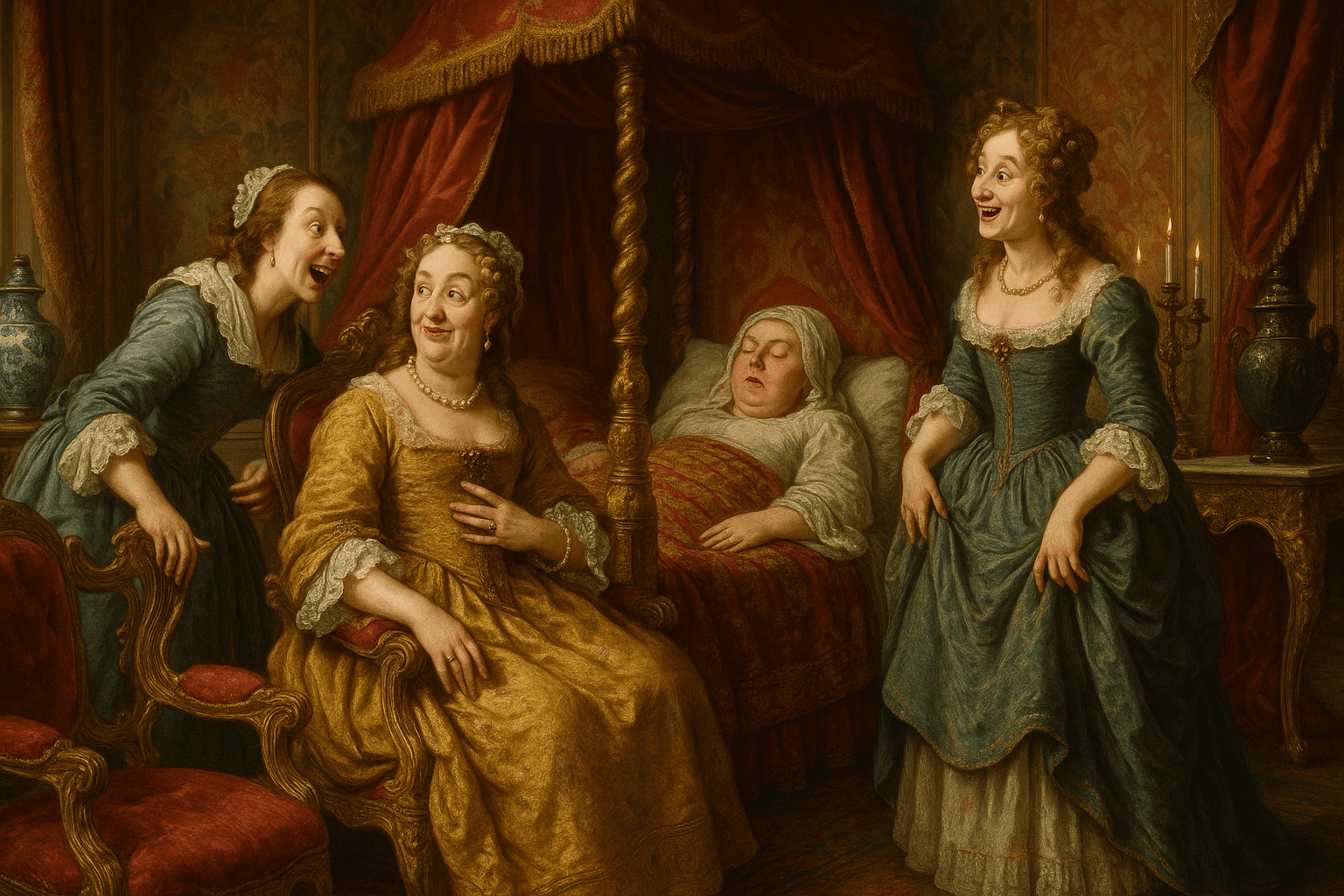The Illusion of Status: Unpacking Social Hierarchies and Luxury in Les caquets de l'accouchée

In the rich tapestry of historical fiction, few themes resonate as profoundly as the interplay between social status and luxury. In Les caquets de l'accouchée, this theme unfurls through the lens of 17th-century French society, where the customs surrounding childbirth become a microcosm for examining the broader societal dynamics at play.
From the outset, the narrative draws us into a world where the birthing chamber is not just a space for welcoming new life but also a stage for displaying wealth and status. Noblewomen, draped in fine linens and surrounded by the trappings of luxury, showcase their elevated positions through elaborate birthing ceremonies. Yet, as the text points out, these ostentatious displays invite satire, revealing the absurdity of a culture that equates motherhood with social performance. The poets and satirists of the time, like Guillaume Coquillart, deftly critique this excess, highlighting the burdens placed on husbands to uphold these societal expectations.
The juxtaposition of the wealthy and the bourgeois is particularly striking. As the narrative traverses the lives of various characters—ranging from noblewomen to the merchant class—it illustrates how the pursuit of luxury often leads to a superficial understanding of social worth. The protagonist’s consultations with doctors serve not only as a comedic device but also as a sharp critique of the frivolities that occupy the upper echelons of society. In these dialogues, health advice becomes entangled with gossip, reflecting a moral decay that complicates relationships and highlights the inherent absurdities of their social world.
Moreover, the anonymity of the author underscores a crucial point: social status can be a double-edged sword. By concealing their identity, the author invites readers to question the very foundations of prestige and the value placed on authorship. This anonymity serves as a metaphor for the often-unseen forces that dictate social dynamics, revealing how luxury can become a veil that obscures genuine character and integrity.
As we delve deeper into the text, the lavish details surrounding childbirth celebrations draw our attention to the moral implications of such excess. A merchant woman’s chamber, adorned with expensive furnishings, reflects not only her wealth but also the societal pressures that accompany motherhood. The luxury she possesses is juxtaposed with the weighty expectations of her social standing, raising questions about the moral decline that such affluence can engender. The narrative critiques the very essence of luxury, suggesting that it can lead to a hollow existence, where the pursuit of status overshadows authentic relationships.
The dialogues among the women, particularly those surrounding postpartum visits, further illuminate the complexities of social interactions. Gossip becomes a tool for reinforcing social hierarchies, where reputation is a currency exchanged in the marketplace of public opinion. The protagonist's discomfort with her visitors—whom she deems of a lower social class—highlights the fragility of status and the precarious nature of female reputation in a society quick to judge.
By the end of the narrative, the illusion of luxury and social status is laid bare. Through humor and keen observation, Les caquets de l'accouchée presents a world where the quest for social elevation can lead to moral ambiguity, questioning whether true luxury lies in material wealth or in the authenticity of personal connections. As readers, we are left to ponder: in a society so obsessed with status, what does it truly mean to be wealthy? Is it the opulence of our surroundings, or the richness of our experiences and relationships?
In conclusion, the exploration of social status and luxury in Les caquets de l'accouchée serves as both a historical commentary and a timeless reflection on the human condition. It invites us to scrutinize our own societal structures and the often-blurred lines between worth and wealth, reminding us that the pursuit of luxury can sometimes lead us away from what truly matters. Perhaps, in the end, the greatest luxury is the freedom to live authentically, unencumbered by the chains of societal expectation.
Books: Les caquets de l'accouchée / nouvelle édition revue sur les pièces originales
Publishers: Public Domain